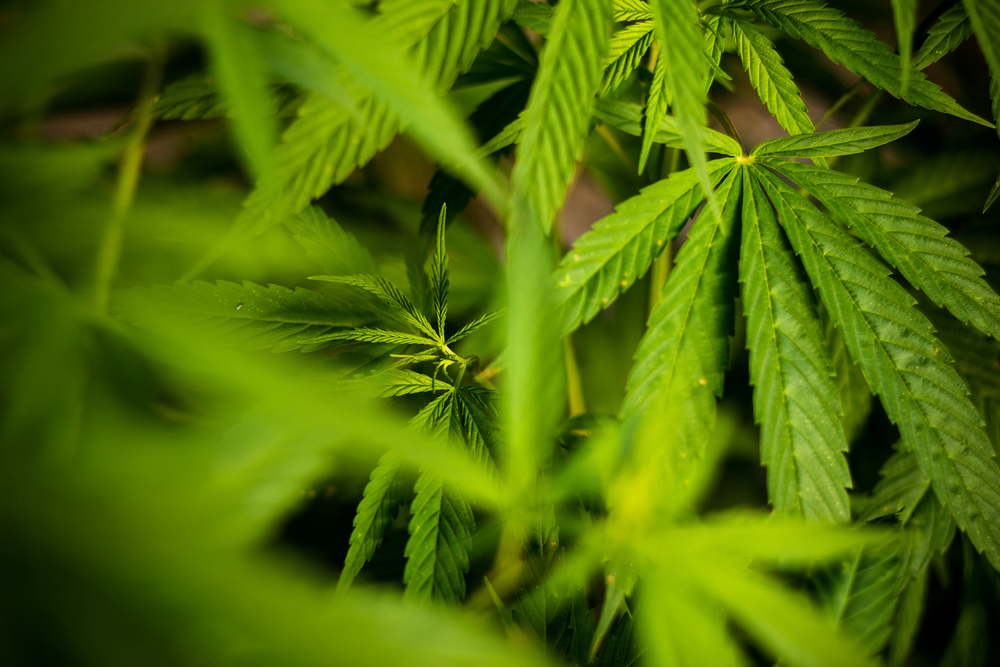Advocates look to further reduce drug-related arrests, incarceration.
Shane Mckee, co-founder of Shango Premium Cannabis dispensary in Portland, Ore., pulls a medical marijuana sample from a display casing on Nov. 5. Oregon became the third state to legalize recreational pot on election night, but it will be more than a year before the first shops open.
Nov. 12, 2014 | 12:01 a.m. EST
+ More
Buying marijuana is now about as easy as shopping for liquor in Denver and Seattle.
Soon, four states will regulate and tax sales of joints and pot brownies, and drug policy campaigners see deeper reforms on the horizon. Flush with new funding and optimistic that Americans have turned a page, the American Civil Liberties Union plans to lead the charge.
“What the marijuana legalization votes tell us is the door is open to reconsidering all of our drug laws,” says Alison Holcomb, national director of the ACLU’s new nationwide campaign against “mass incarceration.”
A $50 million grant from billionaire George Soros’ Open Society Foundations will fund the effort.
Holcomb wrote Washington state’s pot legalization initiative, which voters approved in 2012 along with a Colorado ballot measure. Residents of Alaska, Oregon and the District of Columbia voted last week to follow.
“These votes are not about whether or not voters think marijuana is wonderful and that people should be using marijuana,” Holcomb says. “Instead they are really rejections of the laws that have existed for the last four decades.”
[MORE: Pot Legalizers Look to 2016 After Big 2014 Wins]
There are 18 states, along with the District of Columbia, that have passed legislation to either legalize or decriminalize marijuana.
Marijuana continues to be illegal under federal law, but the Obama administration has allowed broad leeway for states to allow recreational sales, despite President Barack Obama’s reluctance to administratively change the 1970 congressional classification of pot as among the most dangerous drugs.
The legalization votes, Holcomb says, “are a harbinger of a deeply felt desire on the part of the American voters to do something completely different.”
The ACLU plans to stay on the sidelines of future pot legalization campaigns – already supported by well-organized groups plotting about a half-dozen ballot campaigns in 2016 – and to instead pour resources into less-advanced fights for criminal justice reform.
One model the group hopes to replicate is California’s Proposition 47, approved by 58 percent of state voters last week to lower penalties for drug possession and other nonviolent crimes. The proposition allows for retroactive reclassification of felony convictions as misdemeanors and sentencing reductions for current inmates.
Lenore Anderson, a co-author of Proposition 47 and executive director of Californians for Safety and Justice, says she’s aware that people from other states are seeking to replicate the successful amendment.
“When it comes to criminal justice and drug policy, Americans are thinking differently about these issues,” she says. “The main message for policymakers is some of the old ways of thinking around prison-first policies and using the criminal justice system to deal with something like drug addiction is something the public doesn’t think is wise anymore.”
[ALSO: D.C. Votes to Legalize Marijuana]
Holcomb says the ACLU plans to support measures similar to Proposition 47 in 2016, and – ideally – measures that would not only de-felonize but also decriminalize drug possession, meaning eliminating criminal penalties like jail time for drugs other than marijuana. She says, however, the group will not press to regulate the sale of all drugs like marijuana.
Most Americans behind bars are there for violating state laws, so that’s where the ACLU plans to focus.
“We would love to be able to have ballot initiatives in a number of states that may look very similar to Proposition 47,” Holcomb says. “Hopefully we will be able to find states where we can go further and say, ‘Let’s decriminalize the possession of drugs and let’s talk about what we can do to address drug use and abuse.’”
Ethan Nadelmann, executive director of the Drug Policy Alliance, says his organization would support decriminalization ballot measures in any state where polling indicates majority support.
But, he says, broad drug decriminalization probably lacks such support in any state-level jurisdiction aside from the District of Columbia.
Nadelmann says the pot legalization wins are “creating a sense of momentum, but with the other drugs it’s really about reducing dependence on arrest and incarceration.” He doubts there will be majority support in the near future for legalizing drugs other than marijuana, with the possible exception of certain hallucinogens.
Nadelmann’s group, a major national leader on marijuana legalization alongside the Marijuana Policy Project, has smaller steps in mind for drug policy reform. It supported an initiative approved this month by New Jersey voters to reform the state’s bail system so that low-income residents arrested on nonviolent charges be released pending trial and plans to push for Good Samaritan laws to encourage the reporting of drug overdoses and, ultimately, the establishment of harm-reduction measures such as safe injection sites.
“Drug policy reform has evolved from being the black sheep of criminal justice reform to being the cutting edge of criminal justice reform,” he says. “Basically, a majority of Americans clearly believe there are too many people behind bars for nonviolent, low-level drug offenses.”
[MORE: Drugged Driving Perplexes Scientists, Lawmakers]
About one in every 200 Americans was arrested for an alleged drug-related offense in 2013, according to data released Monday by the FBI. About 46.2 percent of those 1,501,043 drug-related arrests were for marijuana.
The U.S. famously has the largest prison population in the world. A September report from the Justice Department’s Bureau of Justice Statistics reports about 16 percent of the 1,314,900 inmates warehoused in state facilities in December 2012 were convicted of drug crimes. About 51 percent of the 193,775 federal prison inmates in September 2013 were jailed on drug charges.
State-level action isn’t the only front for drug policy reform. There’s federal-level sentencing and criminal justice reform efforts, too, and the ACLU hopes to help make the issue a presidential election year issue in 2016.
Localities are also creeping toward reform. New York City’s government announced Monday a discontinuation of using arrests to punish citizens caught with small amounts of pot – opting instead for court summons – following the July decision by Brooklyn’s district attorney to stop prosecuting most small-scale pot cases. District of Columbia voters’ decision to legalize weed will likely test the congressional waters for more permissive policies early in 2015.
In addition to pushing particular reforms, the ACLU campaign will seek to assemble better data. Some of the group’s campaign will focus on non-drug offenses.
As leading drug reform campaigners seek to either take a sledgehammer or chisel to current U.S. drug laws, idealists foresee a not-too-distant future where a comprehensive tax-and-regulate structure is established for most currently illegal drugs, a scenario that seemed implausible for marijuana not long ago.
“Legalizing all drugs and establishing a controlled and regulated market is what would really, really put the cartels out of business,” says Sean Dunagan, a former Drug Enforcement Administration intelligence specialist.
Dunagan worked five years on the front lines of the war on drugs in Guatemala and Mexico and came to the realization it’s impossible to smash the black market for illegal substances or permanently drive down drug consumption.
“You can get cocaine in just about any school, there are heroin arrests in small towns across the country,” he says. “There’s really no way to arrest and incarcerate our way out of the problems associated with illegal drugs. It doesn’t work and if it doesn’t work, common sense would dictate we look for alternatives.”
Dunagan, now affiliated with the group Law Enforcement Against Prohibition, says the small user populations for drugs such as cocaine compared with marijuana makes it difficult to see how significant public pressure for legalization would mount in the near term, but he’s confident the day will come.
“For the government to do something that is so ineffective, and so costly and so deadly, I can’t believe that that policy would continue to exist in perpetuity,” he says.


